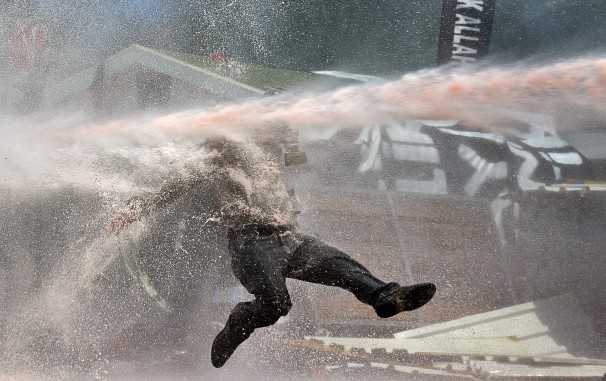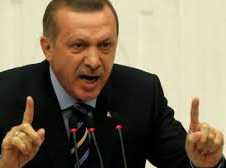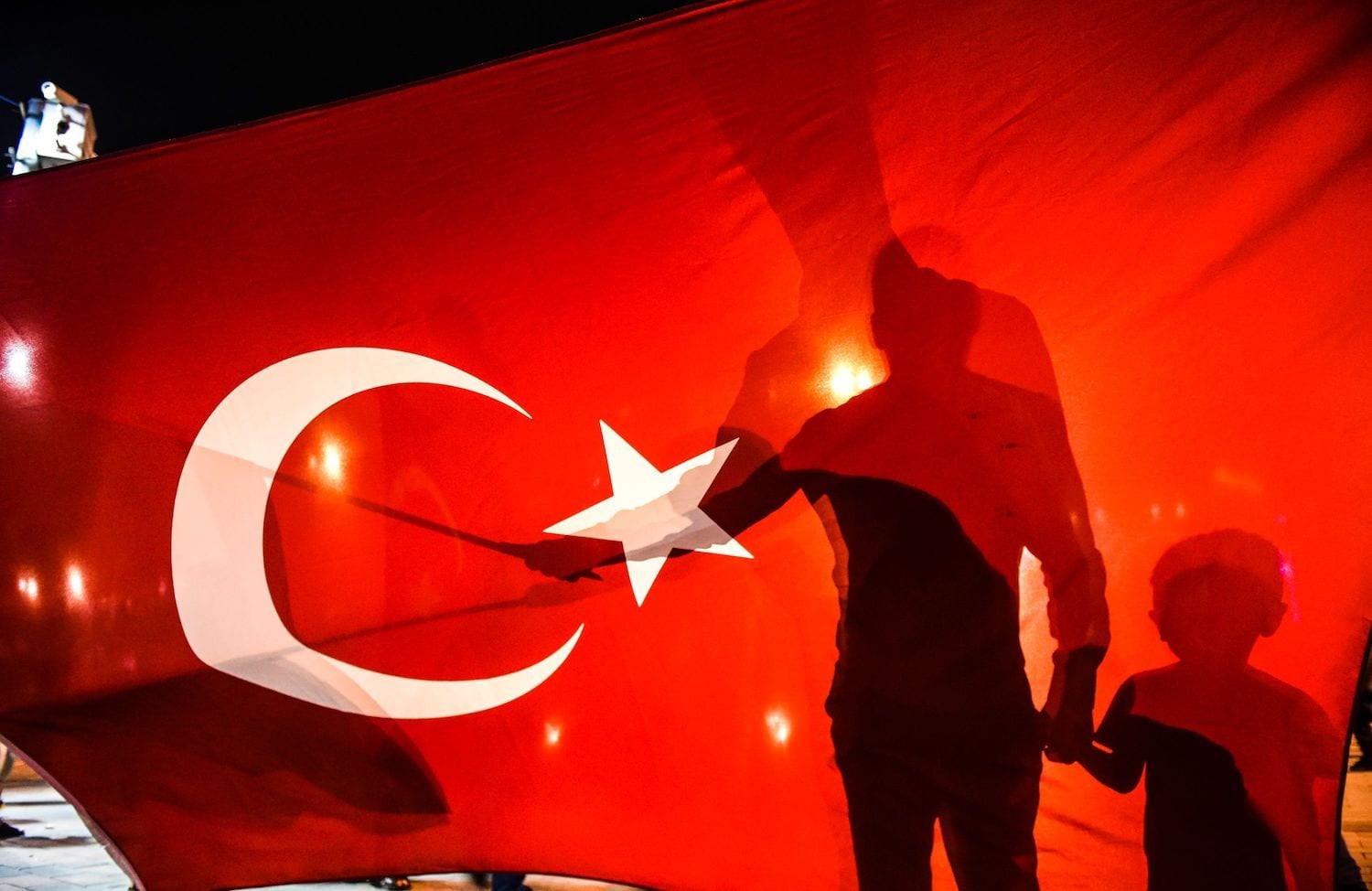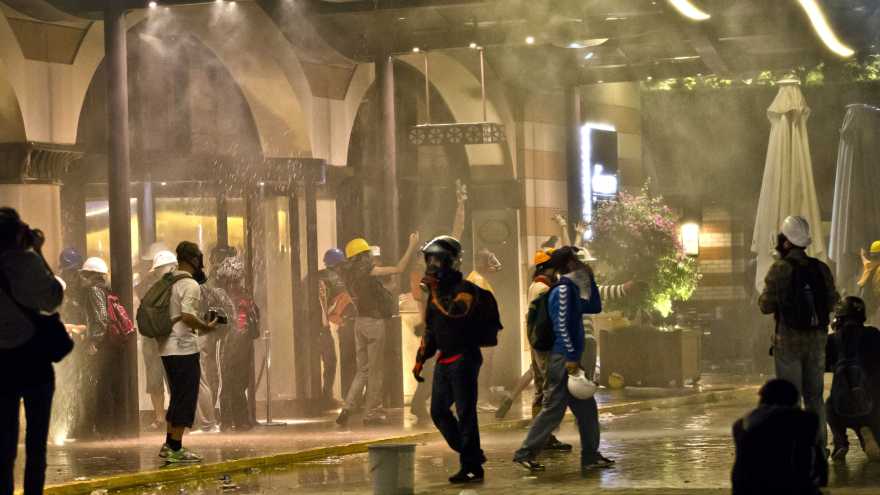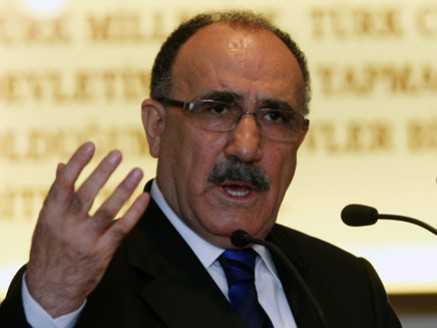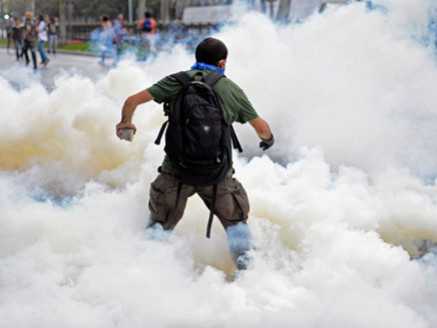THIS ARTICLE PUBLISHED IN ASLA (American Society of Landscape Architects) DIRT Blog. TF SELECTED TO REMIND US……
06/13/2013 by The Dirt Contributor
I have been under stress watching the recent events take place in my native Turkey. These events began with peaceful demonstrations on May 29 by environmentally-minded citizens who wanted to preserve one of the last remaining green spaces in Istanbul. They did not want to see the demolition and privatization of a public park known as Gezi (Promenade) Park in a major public open space in the district of Taksim. However, excessive use of force by the riot police — with their use of water cannons, rubber bullets, and tear gas to disperse the demonstrators — quickly brought more protesters, who then introduced an anti-government agenda. Public gatherings in support of the Gezi Park as well as anti-government demonstrations quickly spread over to other major cities and 78 of Turkey’s 81 provinces. The use of excessive force by police to disperse the protestors in Istanbul, the capital city of Ankara, and the third largest city Izmir, has been clearly documented by the international media. As a result, Prime Minister Recep Tayyip Erdoğan and his religious-based conservative government look vulnerable for the first time in his ten-year administration. Despite significant economic successes under his leadership, this episode has the potential to tarnish the international image and reputation of Turkey, a majority Muslim country with a strongly secular tradition.
I believe these sad developments can be linked to the top-down planning style of the Prime Minister, who once again took center stage to explain his vision for this public square and park during these tragic events. Furthermore, instead of trying to calm the protestors and approve the requested dialog for public participation, the PM sent in his supporters in addition to riot police.
The plans by the Istanbul city government, which were strongly promoted by the PM, initially called for razing the park to build a shopping mall inspired by a demolished Ottoman Military Barracks. Based on initial protests, the PM backed off plans for a shopping mall on the site, but there are still plans to remove the existing park and building “something” there. For the rest of the Taksim Square, the PM calls for removing several stores to bring an existing church into the open and build a “major mosque” on the other side of the street, in a location that used to be a private theater for musical performances. This is proposed under the guise of open dialog and respect for both religions.
As for the proposed plans and designs: The overall plan, which calls for the removal of the park, would create several underground tunnels to alleviate the traffic congestion that currently plagues the square. They would add very large turf areas in the shape of tulips, which are a revered flower in Turkey and also known to have religious symbolism referring to the Prophet Muhammad. The PM’s statement suggesting that “something” will be built there proves there is no design thought given either to the master plan or the street-level designs (see videos below):
As an educator, I would call the proposed overall plan for the square and the park sophomoric at best. This park has been the subject of many of my projects when I was an undergraduate student in late 1970s. Over the years the park has been encroached upon along its edges and has received minimal maintenance and care; an occasional bench replacement is about that seems to be done.
Despite their neglect, trees have matured and provide the only shaded area and refuge from the highly-motorized greater Taksim square. The current state of the park reminds me of Bryant Park in New York City prior to its most recent renovations. It’s true that something needs to be done to take advantage of this wonderful green oasis in the sea of cars dominating Taksim Square. However, the proposed removal of the park to establish a private shopping center or “something” is not what is needed.
The use of earlier Ottoman Military Barracks as an inspiration for the proposed shopping center (or some other type of building) is also highly questionable. These barracks were the scene of one of the bloodiest uprisings by mullahs, who wanted religious laws enacted during the last decades of the Ottoman Empire (similar to those used in Iran or by the Taliban today). Atatürk (Father of Turks), the founder of today’s modern Turkey, was the Ottoman Military commander who quashed these uprisings in the late 1800s and consequently ordered the destruction of the barracks after the establishment of Turkey in 1923. The promotion of the image of these barracks by the PM as a back drop to the proposed developments begs the question: how much respect does the current government have for the strong secular traditions of the country?
The proposed plans do not seem to give even a cursory thought to the needs of pedestrians. They do not offer any significant design elements for the human scale. Perhaps another unstated objective of the PM is to minimize and eventually remove the monument to the Independence War, which houses sculptures of Atatürk, his commanders, and the unknown soldiers during the final days of the occupied Ottoman Empire. The videos released by the metropolitan city government of the proposed development make this meaningful landmark look as insignificant as an ant.
PM Erdoğan’s government owes some of its economic successes to the privatization of many government institutions, holdings, and services. Some of these privatization efforts were perhaps necessary to encourage private financing and development. But selling national treasures is highly questionable. The government has sold parts of the first model farm in Ankara established by Ataturk to international clients to establish a private resort. At the present, there is extensive clear cutting in the Atatürk Farm.
Let me explain the significance of this: Could you imagine the U.S. Government selling President Jefferson’s Monticello? Similarly, how would the American public react if the U.S. Government or the National Parks Service were to sell some of much-cherished open fields not covered by memorials in the National Mall in Washington, D.C. for a private shopping mall development? This is exactly what is happening in Istanbul and other cities in Turkey.
All of these tragic events could have been avoided if either the PM Erdoğan or his representatives were to institute a public hearing system in their planning and design process. Instead the PM is more concerned with the demonstrators questioning his authority and calls them “çapulcu,” meaning marginal and extreme. At other times, he’s called these concerned citizens of Turkey “terrorists.” This is quite ironic considering that it’s the PM’s government who is holding talks with a convicted killer and the head of the internationally recognized terrorist group PKK (Kurdish Separatists).
Prime Minister Erdogan PM and all of his representatives must recognize they are elected to represent the people. These people have shown up in unprecedented numbers to express their opinions and represent themselves. If the PM and his government continue to ignore the voice of the people, they may not be re-elected as the peoples’ representatives. Finally, Mr. Erdoğan needs to make up his mind if he wants to be the Prime Minister of Turkey, the Mayor of City of Istanbul, or an urban designer. If the Prime Minister has no intention of going back to school, then he should let the real design professionals do their job and concentrate on managing the government in a way that will make all Turkish citizens proud.
This guest post is by Professor Sadik Artunc, FASLA, RLA, head of the department of landscape architecture, Mississippi State University. A native of Turkey, Professor Artunc has a BS and MS in forestry and forest engineering from the University of Istanbul and an MLA from the University of Michigan. Prior to arriving in the United States in 1975, he worked in Turkey as a forester for the Ministry of Forestry, as a recreation planner in the Central Planning Office, and as the planning director of the Olympus National Park for the Department of National Parks.
Image credits: (1-2) Turkish Revolution, (3) The Huffington Post, (4-5) Taksim Square / Wikipedia

